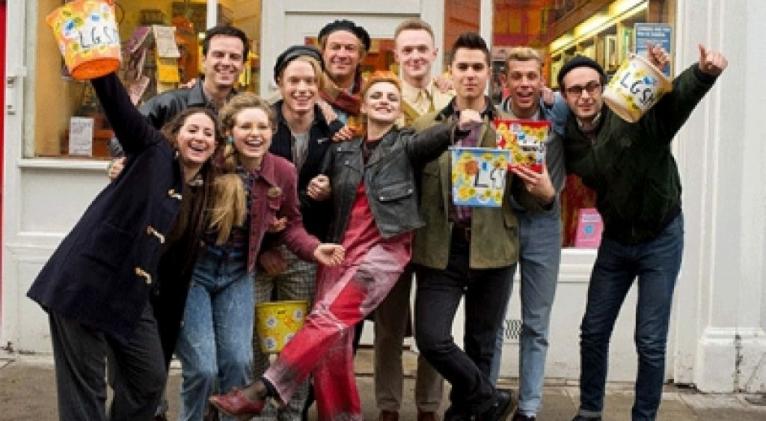Mike Jackson in Cuba
especiales

The English LGBTI community rights activist, whose story is part of film “Pride”, is participating these days at the 11th Day Against Homophobia and Transphobia.
Film “Pride”, historic drama-comedy, was released in the United Kingdom on September 11 and has earned over 14 million dollars. However, monetary collection was not its greatest worth, but the visibility it gave the LGBT (lesbians, gays, bisexuals and transsexuals) community in the 1980s, when it was demonized by the Margaret Thatcher government.
Mike Jackson, one of the gay activists, who had an active participation in favor of the miners who were on strike for better labor rights, is in our country these days as guest of honor of the National Center for Sex Education (CENESEX), on the occasion of the 11th Day Against Homophobia and la Transphobia.

The experience in favor of the striking miners lived by Mike along those days was one of the stories that Stephen Beresford, the screenwriter of the film, took to “Pride” with actor Joseph Gilgun.
Mike feels happy to be in our country for the first time and believes that Cuba has made a lot progress —similar to Great Britain— as regards the rights of the LGBTI community. The last letter (I) in the initials has been added in recent years and means intersexual).


 Poster of the 11th Day Against Homophobia and Transphobia.
Poster of the 11th Day Against Homophobia and Transphobia.
“In 1984 was the moment when Margaret Thatcher rose to power for the second time. She wanted to close 20 mining wells and to leave about 30000 people without work. I was simply a young man with a socialist thought”.
Why did the LGBT community support the miners?
“For this community it was not only important to recognize its rights, but those of other people as well”.
The screenwriter even respected the real names of those who supported the miners. Undoubtedly, it was a real pride…
“Yes, of course! Stephen, the writer, approached me; he had heard my story and thought it was amazing and worth making a film on what happened at that time. The experience was different for each of us. Some had previously had a link with the miners; however, I hadn’t, but from the onset, I felt identified with them, because I came from the working class.
“The struggle lasted around a year; then the miners invited us to go to Wales to live with them and their families”.
What did it mean to you that a film based on those events has been made?
“It was incredible! Many young people started to feel attracted by our way of acting. For example, new gay support groups have emerged today, such as the ones that support dock workers and migrants. People are trying to do what we did in 1984. We couldn’t expect anything better than that!
“The film allowed us to raise our voices not only in the United Kingdom, but in other countries as well and to speak about struggle and commitment”.
How do you see respect for the LGBTI community in Cuba?
“I’ve barely been three weeks here, and I’d like to stay longer. Cuba is a pretty safe country, there are no drugs on the streets, nor homeless people. It is a great contrast to London, where people live pretty frustrated. In my country, the strength of the political right has been in power for forty years, but now, the new leader of the Labour Party, , Jeremy Corbyn, is a pretty good leftwing candidate.
“In 1987, Margaret Thatcher introduced a law, the so-called Section 28, which banned people from speaking about homosexuality in schools and other public places. Then, it cannot be said that everything is liberal and open in Great Britain. Unions have been strangled and today it is pretty tough to fight openly for the rights of one or the other sector”.
If they tell you that “Pride” is going to have a second part, what would you think?
“If that happens, I am going to migrate to the moon”.
Brief synopsis of Pride
 One of the film's scenes .
One of the film's scenes .
The film depicts a group of LGBT activists who raised money to help the families affected by the strike of British miners in 1984, at the start of what would be the “Lesbians and Gays Support the Miners” campaign. The National Union of Mineworkers was reluctant to accept the group’s support because of the concerns over the public relations of the union, to be associated with an openly gay group, therefore the activists, instead, decided to take their donations directly to a small mining town in Wales, resulting in an alliance between both communities. The alliance was unlike any other seen before, but it was a success.
Translated by Jorge Mesa Benjamin / Cubasi Translation Staff













Add new comment